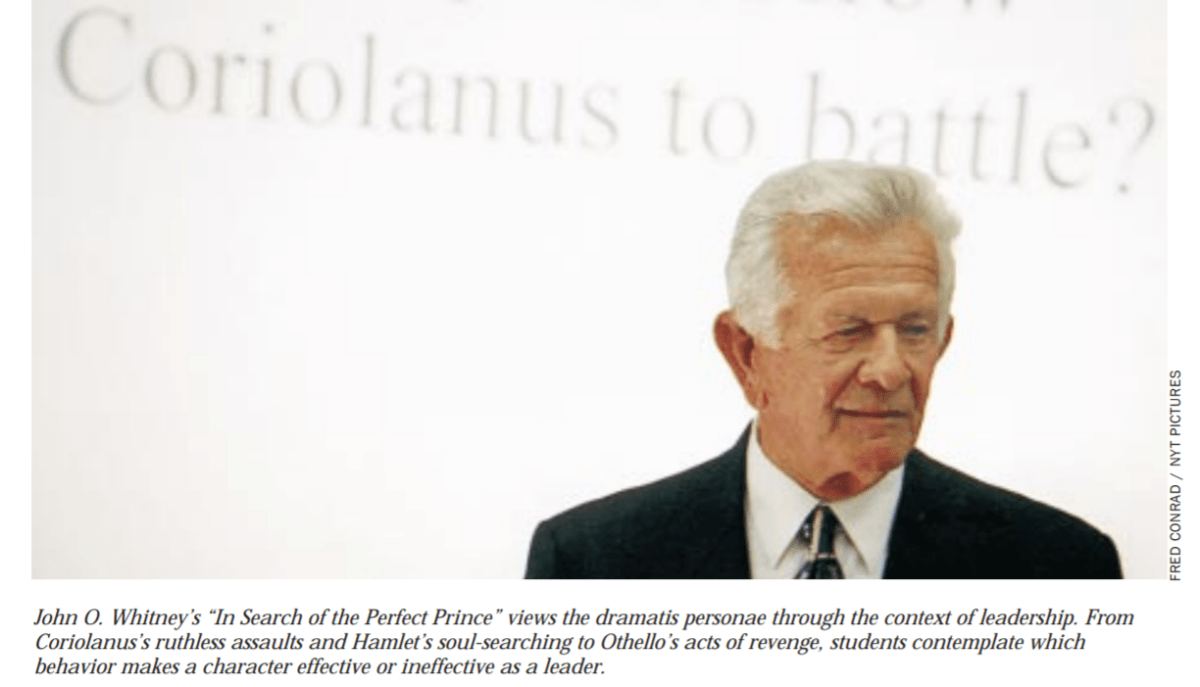
I am 28 years old. At sea in a foreign land.
My fourth month as a first-time father, my second term as a full-time student and my very first year on campus in New York.
I am not sure if what I am planning on building is possible, if this is the right time for it, or if we can even afford to do it.
Surety and confidence are fair weather friends that summer. Found in abundance in the classroom, absent when needed in the real world.
It is May, 1999.

A few months later, I asked three of my professors for their opinion. All three were accomplished professionals.
The first was a retired banker, a published author, a traveler to exotic foreign lands, a subject matter expert in my field.
The second taught strategy and had run the world’s largest syringe manufacturing firm before retiring early to teach full time at the business school.
The third was a legally blind seventy-year-old with a spark in his eyes who flew coach every week from Florida to NYC to teach us and the executive MBA crowd.
The banker was a realist. He simply said, ask yourself this.
“How can you do what you want to do in two months if it takes us five years and even then, we fail miserably at it. We have been doing it day in and day out for years, you would be trying it for the first time.”
The implication was clear. He did not have to say anything else.
The strategist was more open. He taught disruption and performance for a living. He was a believer in experimentation and trial.
He respectfully and politely disagreed with the banker.
In his world view, just because someone else had not been able to do it did not mean we could not get it done. What was the worst that would happen? We would fail. That was not something to be afraid of.
John Whitney was the tie breaker between the banker and the strategist.
A month earlier in a new classroom in Warren Hall, in front of sixty odd classmates, enacting the confessional scene from Hamlet, Whitney had asked if we could pull the hypothetical trigger.
“It’s one thing to say you can. It’s another to actually do it.”
He then kneeled in supplication, closed his eyes, raised his hands in prayers in front of the class and said.
“There is a ball point pen on the desk next to me. Think of it as your gun. Think of the me as the King of Denmark, the killer of your father, confessing, praying. You are Prince Hamlet. Put the pen next to my head and pull the trigger.”
He asked for volunteer executioners. In a room packed with students, a few raised their hands. Only two could pull the trigger.
In the class, John was a man of few words. He did not believe in extended lectures. He believed in getting right to the point. Especially if the point was uncomfortably close to the truth.
In dissecting Hamlet, his question was simple.
How far are we willing to go to get what we want? How sure are we that it is something that we want?
Earlier that week Ken Craddock, Whitney Teaching Assistant had screened Kenneth Branagh’s Hamlet for us on the ground floor in Uris Hall. The big hall on the right, Room 142, immediately after the entrance, serving as our private theater.
We had been asked to explore Hamlet’s inner thoughts.
Did Hamlet have a death wish? Would he be a good team member? Would we hire him? Would he be a star performer or a diva?
But that was Ken and the assignment. Post the screening, in the class, Whitney zeroed into a comment during discussion on why we were being so hard on Hamlet when we were not sure how many of us would be able to pull the trigger.

In Search of the Perfect Prince

Whitney’ course was titled In Search of the Perfect Prince. In the business school world in May 1999, the course was as maverick as Falstaff, John’s favorite character in Henry the IV.
It was hidden amidst the course offering for the summer semester.
The title caught a few eyes, but it was not par for the course for most students. My peers wanted to work with professors in private equity, value investing, investment banking, technology, and media management. “I am not here to study Shakespeare”, a classmate quipped when I told her about my plans for the course.
Whitney had written a short unassuming summary of what the course offered. It said we would use Shakespeare, his plays and history to explore challenges in leadership.
Enough of us enrolled in it to fill in a room in the summer of 1999. We came because of Whitney’s reputation as the Professor who used to teach the Turnarounds Management course.
“Take whatever course John Whitney is teaching even if it is English literature”, the school grapevine said.
I did not think it was a course that would change my life or change the way I think.
We read, studied and watched Shakespeare, but our context was not language, grammar, or structure. It was challenges in leadership rooted in self.
If we understood the common ones and our position on those, Whitney proposed, we would be better leaders.
Knowing who you are and where your true north lies helps. Understanding power, persuasion, influence, and oratory helps. Living through failures and successes of other helps.
Rather than cases we used versions of actual and fictionalized history. From Elizabeth to Julius Caesar, from Cornelius to War of Roses, John put us in the shoes of real historical characters and asked us simple questions.
What do you think? What would you do? What would you say?
In the forty-five hours he spent with us that term he did not speak for more than two. I remember him posing questions and then guiding the discussion in the room. He would intervene, interject, redirect, and guide with gestures as a master conductor but he would rarely lecture or speak.
Occasionally to conclude, sometimes to reinforce a point that needed to be reinforced. Once to ask for volunteer executioners.
What really made him stand out among his peers was his desire to learn, to be a student with us, a fellow traveler, an observer in our journeys toward higher levels of self awareness.
This course was not about him. It was about us.
Thinking. Challenging. Questioning. Listening. Exploring. Accepting.
That was Whitney’s gift.
The question?

It was natural that in August that year I found myself in Whitney’s and Ken’s offices telling them both about my two conversations. With the banker and the strategist.
Should I, or shouldn’t I? To be, or not to be?
It did not take him long to answer my question.
He had known the answer before I had walked inside his room. Because we had already discussed it to death in Search of the Perfect Prince. It was what he himself would have done.
“Why not, Jawwad. There is only one way to find out.”
Three words. One short sentence. Twenty-one years later it does not sound like a big deal.
It is one of the many defining moments in my life.
Like Whitney would say, you must explore the context.
I came from a culture where being safe, doing the safe thing had been more important than taking risks. It had taken a series of unexpected miracles to get me to Columbia and to that moment in Whitney’s room.
In my world we put teachers on pedestals and worship them. Teachers could never be wrong, even when they were wrong. Whitney was the first of many at Columbia who said, I do not have all the answers. I do not know. Tell me what you think.
He was one of the few who truly meant every single word.
“There is a tide in the affairs of men, Which taken at the flood, leads on to fortune. Omitted, all the voyage of their life is bound in shallows and in miseries. On such a full sea are we now afloat. And we must take the current when it serves, or lose our ventures.“
Julius Caesar, William Shakespeare
Brutus’s lines to Cassius from Julius Caesar were my last assignment in Whitney’s course. He had made us read Machiavelli’s The Prince before Julius Caesar and the class discussion had hit a high note.
“Men at some time are masters of their fates: The fault, dear Brutus, is not in our stars, But in ourselves, that we are underlings.
Brutus and Caesar: what should be in that ‘Caesar’?Why should that name be sounded more than yours?
Julius Caesar, William Shakespeare
Write them together, yours is as fair a name; Sound them, it doth become the mouth as well; Weigh them, it is as heavy; conjure with ’em,“
Moving from Cassius to Brutus, from Brutus to Cassius and from the two to Mark Antony, Whitney had us spinning within circles of subterfuge, intrigue, influence and persuasion.
We may have been speaking Shakespeare but in Whitney’s hand it was no longer a stage play. It turned dark and real world very quickly. This is not a drill.
I remember walking back home that Wednesday evening and shaking my head as I tried to digest everything we had discussed in the last three hours of his instruction.
To think that I was blessed with a personal connection with such a soul did not compute. I was not worthy of such an honor, for I was one of the two who had pulled the trigger at Whitney’s altar.
Lessons from the Prince
The ability to look inside and accept what we find.
The ability to accept and openly acknowledge that we do not have all the answers. As parents, teachers, founders, and elders.
The ability to inspire, influence and motivate people to reach for and touch the impossible.
To ability to teach this to some of the smartest people in the world was also Whitney’s gift.
He taught us that often there are no right answers. That conflicting views and diversity in opinions lead to very illuminating conversations that leave us all collectively richer.
That there are times when we should take ourselves seriously. And there are times when we should not.
He did it with so much humility and craft that even today I rank our 45 hours with him as a group the most valuable part of my education across four decades.
Parting is such sweet sorrow
In summer of 1999, John was already 71 years old.
Like Ralph Biggadike another role model who left too soon, I always thought I would be able to go see him, plunk down in the chair in his room in Uris, chat away like old friends who had met after two decades.
That we would speak of roads taken and not taken.
I was wrong.
This weekend hoping against hope, I did a Google search on John. I wanted to drop him a thank you note and ask him how he was. Send him a picture, to see if he remembered me.
If he was still teaching, inspiring and motivating students in the 10th decade of his life.
I found what I did not want to find.
https://legacy.com/obituaries/nytimes/obituary.aspx?n=john-whitney&pid=168696843
It punched a hole in my heart.
John left us in December 2013. He left behind indelible memories of that summer in New York, lines from Hamlet, Julius Caesar and Cornelius.
“To thine own self be true, and it must follow, as the night the day, thou canst not then be false to any man.”
Hamlet, William Shakespeare
The contraditions in Polonius character, Ophelia’s father in Hamlet, amused him. I hope they can still bring a smile to his weathered face.
Miss you John. May the Almighty bless you for the minds you opened, the world you showed us and the gifts you gave away. I know you are in a better place but I would love a chat right about now.

Sources and References
- https://www8.gsb.columbia.edu/alumni/sites/alumni/files/hermes-spring-1999.pdf
- https://www.nytimes.com/1998/12/06/business/personal-business-to-teach-perchance-to-manage.html
